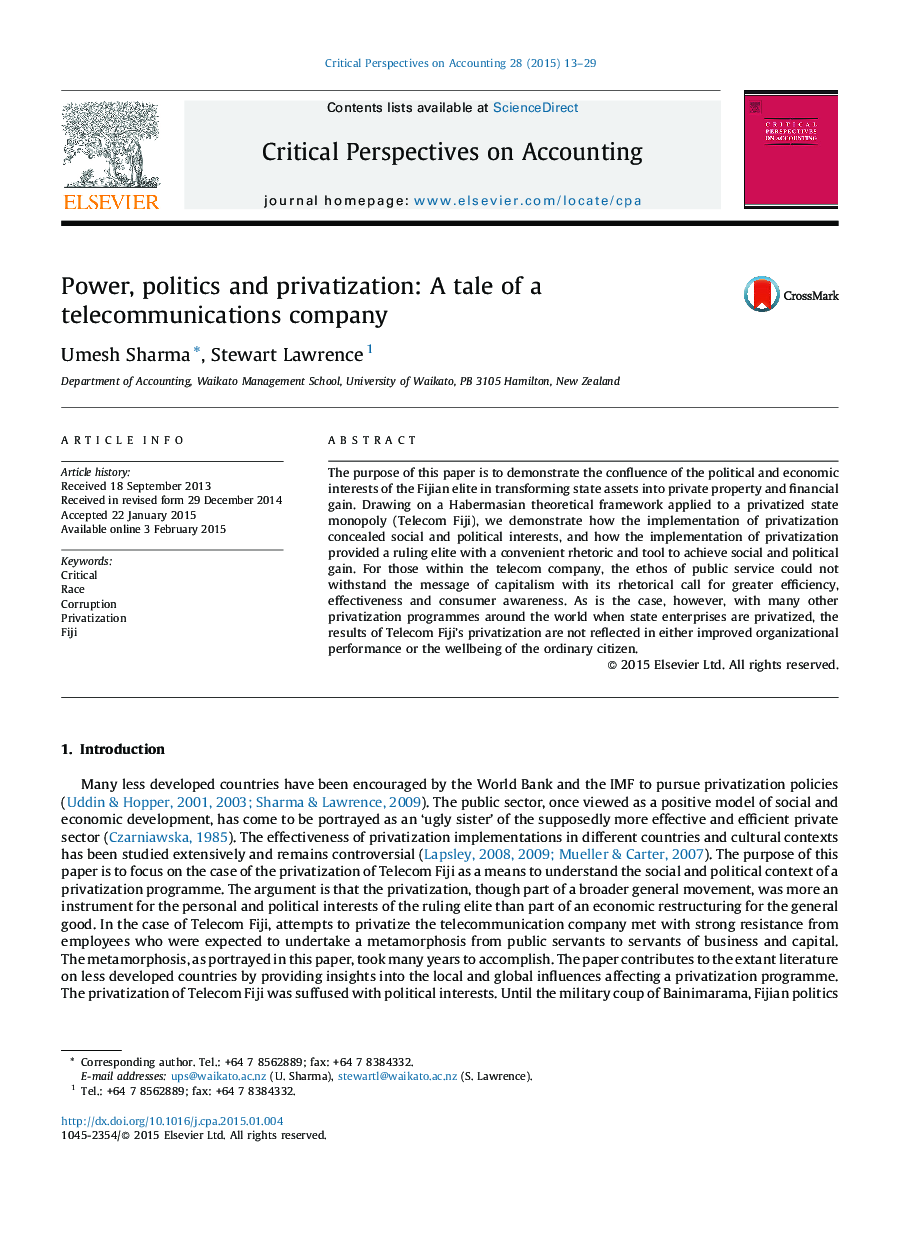| Article ID | Journal | Published Year | Pages | File Type |
|---|---|---|---|---|
| 1000733 | Critical Perspectives on Accounting | 2015 | 17 Pages |
•We illustrate the interplay of Fiji's political and social forces in the introduction of a privatization programme.•The results of privatization are not reflected in the improved organizational performance or wellbeing of the ordinary citizen when a state monopoly is privatized.•A framework for analysis draws on Habermas's critical theory of societal development.•The research approach is to undertake qualitative research which focuses on a case study strategy.•The privatization is shown to benefit the ruling elite at the expense of ordinary citizens.
The purpose of this paper is to demonstrate the confluence of the political and economic interests of the Fijian elite in transforming state assets into private property and financial gain. Drawing on a Habermasian theoretical framework applied to a privatized state monopoly (Telecom Fiji), we demonstrate how the implementation of privatization concealed social and political interests, and how the implementation of privatization provided a ruling elite with a convenient rhetoric and tool to achieve social and political gain. For those within the telecom company, the ethos of public service could not withstand the message of capitalism with its rhetorical call for greater efficiency, effectiveness and consumer awareness. As is the case, however, with many other privatization programmes around the world when state enterprises are privatized, the results of Telecom Fiji's privatization are not reflected in either improved organizational performance or the wellbeing of the ordinary citizen.
